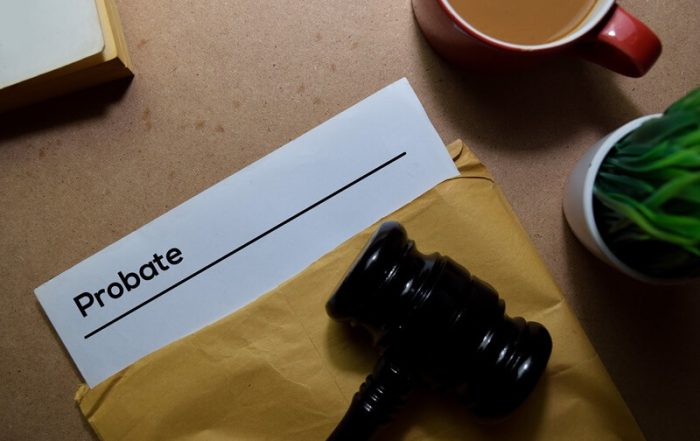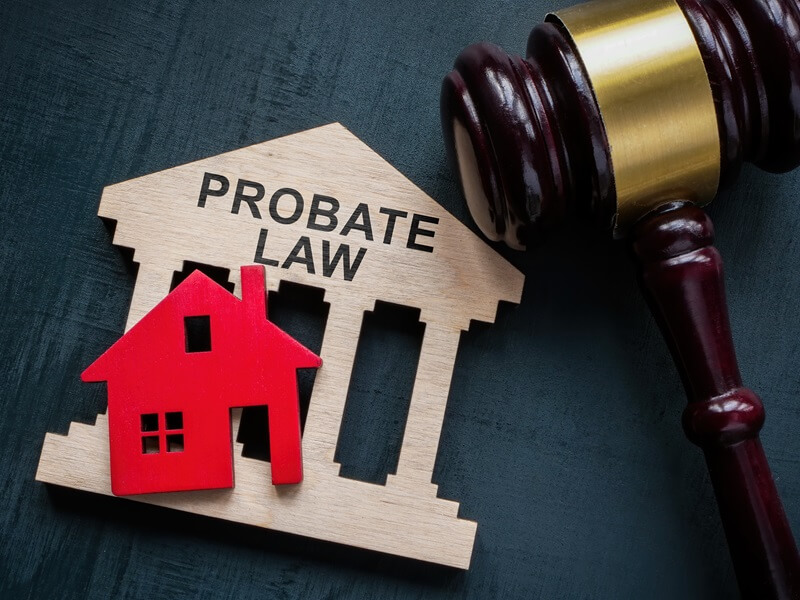Understanding The Los Angeles Probate Administration Process
Understanding The Los Angeles Probate Administration Process
Los Angeles probate administration is a legal process that oversees the management and distribution of a decedent’s estate. While this can be straightforward in some cases, it often involves complexities that require careful attention to detail. A skilled probate administration attorney in California can help navigate this probate process effectively.
This guide explains the probate process, outlining key steps, potential challenges, and the benefits of seeking legal counsel. Additionally, it covers determining if probate is necessary, handling the court process, and distributing assets. The blog also discusses common pitfalls to avoid and strategies for a smoother estate settlement.

Los Angeles Probate Administration Overview
Probate administration involves managing and distributing the assets of a deceased person’s estate. It includes validating the will, identifying assets, settling debts, and distributing to heirs or beneficiaries. This process often requires court filings, accounting, and thorough asset management.
Proper legal guidance is essential for a smooth probate process. A competent probate administration lawyer helps navigate the challenges and ensure compliance with the law. Their advice and support lead to a more efficient probate administration.
The process can be lengthy and complex, especially when disputes arise, or documents are missing. It involves multiple steps and detailed paperwork, which can prolong the settlement. An experienced probate administration attorney in California can simplify these complexities and meet all legal requirements.
A Clear Step-By-Step Probate Process In California
While not all estates require probate, understanding the steps involved is essential. Knowing the fundamental phases can help you prepare for the process and make informed decisions.
Determining Probate Need
Not all estates require probate. Factors influencing this decision include the value of assets, the existence of a will, and the type of property owned. Consulting an attorney can help determine if probate is necessary and explore potential alternatives.
Filing The Probate Petition
If probate is required, it begins with filing a petition with the Superior Court in the county where the decedents resided. This document outlines their assets, debts, and beneficiaries. Typically, the named executor or an interested party files this request. The petition depends on whether a will exists and if an executor is designated.
Attending The First Hearing
The probate court will schedule a hearing to appoint a personal representative (executor or administrator) to manage the estate. Notifying all interested parties, including heirs, beneficiaries, and creditors, about the hearing is vital.
Administering The Estate
The personal representative is responsible for gathering and protecting estate assets, paying debts and taxes, and preparing for the final distribution. It involves inventorying assets, filing tax returns, and managing estate finances.
Handling Creditor Claims
Creditors may file claims against the estate for unpaid debts. The personal representative must verify these claims and negotiate settlements. Proper management ensures that all debts are addressed and prevents delays.
Accounting On The Second Hearing
The final probate hearing determines the distribution of estate assets according to the will or state intestacy laws. The personal representative presents the court with a final accounting of the estate’s finances.
Distributing Assets & Closing The Estate
Once the court approves the final distribution plan, the personal representative distributes assets to beneficiaries. The estate is officially closed after the payment of debts and taxes and the distribution of all remaining assets.
While the probate process can be relatively straightforward in some cases, complexities often arise. Several factors can influence the process’s duration and complexity. Additionally, common mistakes can significantly prolong the proceedings.
Common Mistakes & How To Avoid Them
Navigating the Los Angeles probate administration requires meticulous attention to detail. Oversights or errors can lead to delays, additional costs, and potential legal disputes. Understanding common pitfalls and taking preventive measures is essential.
Not Validating The Will Properly
If a will is not properly validated, it may not be recognized as the legal document governing the distribution of assets. To avoid this, file the will with the probate court and follow all required procedures. This ensures it is officially recognized and can be acted upon as intended.
Ignoring Notification Requirement
Neglecting to notify interested parties and publish required notices can cause delays and legal complications. Ensure you inform all relevant parties and publish notices in a general circulation newspaper. This step helps maintain transparency and avoids disputes.
Mismanaging Estate Assets
Mismanagement includes failing to keep accurate records and mishandling assets, which can lead to legal and financial problems. Maintain thorough records and seek professional advice to ensure proper asset management. Inventory and evaluation must be accurate to provide a complete list and correct estate value.
Misunderstanding Legal Requirements
Misinterpreting or overlooking legal requirements can cause significant delays and legal challenges. Ensure you fully understand and comply with all probate laws and court orders. Consulting with a probate administration lawyer in California can help clarify these requirements and prevent costly mistakes.
Delaying Payment Of Debts & Taxes
Postponing the payment of debts and taxes can complicate probate. Address them according to court instructions to avoid such situations. Timely payments help prevent interest, penalties, and further delays. It maximizes beneficiaries’ inheritance and protects their interests.
Failing To Keep Accurate Accounting
Inaccurate accounting of the estate’s transactions can lead to delays and legal issues. Keep detailed and accurate records of all financial transactions and submit these records to the court for a smoother process.
Addressing these potential issues can significantly reduce the likelihood of complications. In contrast, taking proactive steps can streamline the process and ensure a smoother transition for the estate. Following best practices and seeking guidance can help navigate the probate process more efficiently.
Factors Contributing To A Quick Estate Settlement
Several factors can expedite the estate settlement process. Clear communication, proper asset management, accurate documentation, and prompt payments play crucial roles. These practices help avoid delays and ensure a smooth probate process.
Open Communication Among Heir Or Beneficiaries
Maintaining open lines of communication among heirs or beneficiaries prevents misunderstandings and conflicts. Regular updates and discussions ensure everyone is informed and on the same page. Cooperation among parties helps facilitate a smoother probate process.
Transfer Some Of The Assets To A Trust
Transferring certain assets to a trust can simplify the probate process. Trust assets are managed outside of probate, reducing the workload. This step can significantly speed up estate settlement, avoiding problems typical of complex assets.
Accurate & Complete Documentation
It is vital to ensure that all documentation is accurate and complete. Thoroughly prepare and verify all forms and records. Proper documentation reduces errors and avoids unnecessary delays.
Prompt Payments Of Debts & Taxes
Timely payment of debts and taxes is essential to avoid complications. Address all financial obligations promptly and as per court instructions. This proactive approach prevents penalties and keeps the probate process on track.
Several factors can expedite the estate settlement process. Clear communication, proper asset management, accurate documentation, and prompt payments play crucial roles. These practices help avoid delays and ensure a smooth probate process.
Advantages Of A Los Angeles Probate Administration Lawyer
Engaging an attorney can significantly ease the probate process. Their knowledge helps navigate complex procedures, ensures accurate filing, and maintains effective court communication. These benefits streamline the process and reduce the likelihood of errors and delays.
Guidance Through Complex Procedures
The process is filled with intricate legal steps and requirements. A skilled probate administration lawyer guides you through each stage. They follow all procedures correctly, preventing missteps that could delay the process.
Accurate & Timely Filing
Filing documents accurately and on time is essential. A probate administration attorney in California handles this task with precision. They ensure all forms are complete and submitted by deadlines. This attention to detail helps avoid errors that can cause significant delays.
Effective Communication With The Court
A probate administration attorney manages all court interactions, including scheduling hearings and responding to inquiries. They ensure the process remains on track and meet all legal requirements. Prompt action can speed up the process, saving time and resources.
Protection Of Estate Assets
A skilled probate administration attorney in California safeguards the estate’s assets from potential claims and disputes. They ensure beneficiaries receive their rightful inheritance on time.
With all these advantages, having a skilled attorney is essential in the process. Competent legal counsel provides significant benefits, ensuring accuracy, efficiency, and compliance. Their guidance makes a smooth and successful estate settlement achievable.
Los Angeles Probate Attorneys Streamlines The Process
 Los Angeles Probate Attorneys provides comprehensive services tailored to each client’s needs. Its experienced probate administration lawyers handle all aspects of probate, ensuring a smooth process from start to finish. They meticulously prepare and submit all necessary documents, reducing the risk of errors and delays.
Los Angeles Probate Attorneys provides comprehensive services tailored to each client’s needs. Its experienced probate administration lawyers handle all aspects of probate, ensuring a smooth process from start to finish. They meticulously prepare and submit all necessary documents, reducing the risk of errors and delays.
The team maintains clear and open communication with clients, keeping them informed at every step. They address any issues promptly, preventing potential complications. Their proactive approach ensures that all legal requirements are met efficiently, minimizing the time and stress involved.
By managing estate assets and liabilities professionally, the firm preserves its value. They pay all debts and taxes promptly and distribute the assets accurately. Contact them today and navigate the probate process effectively.
Summary
Los Angeles probate administration is the legal process of managing and distributing a deceased person’s assets. It includes determining necessity, filing petitions, appointing a personal representative, administering the estate, and final distribution. Common mistakes can extend the process.
While it involves many steps, open communication among parties, accurate documents, and other factors can help. A skilled probate administration attorney in California can provide essential guidance. Seeking competent legal support streamlines the process and protects the interests of beneficiaries.








